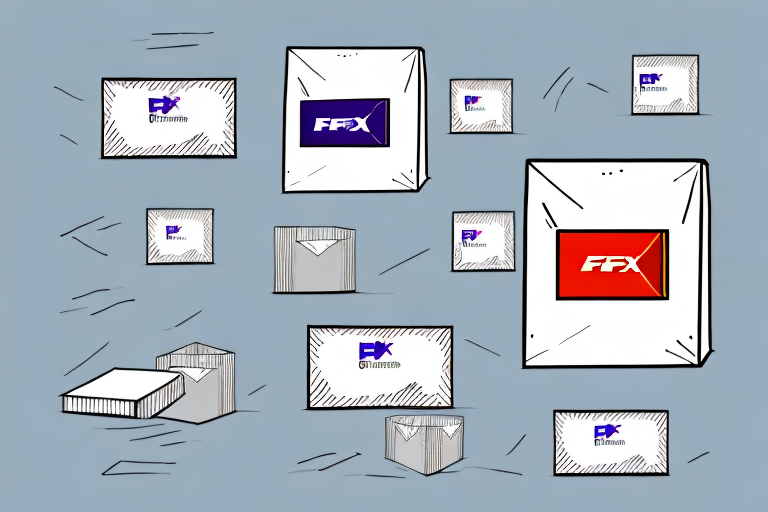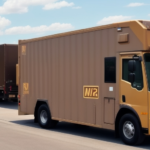Comparing FedEx One Rate vs. Standard Rate: Which Is the Better Option?
Choosing the right shipping option is crucial for any business aiming to optimize costs and ensure timely deliveries. FedEx offers two primary shipping options: One Rate and Standard Rate. Each comes with its own set of advantages and considerations. This comprehensive guide will objectively compare FedEx One Rate vs. Standard Rate, providing you with the insights needed to make an informed decision for your business.
Understanding FedEx Shipping Options
FedEx One Rate: A Flat-Rate Shipping Solution
FedEx One Rate is a flat-rate shipping option designed to simplify the shipping process by offering predetermined pricing regardless of package weight, size, or distance. The cost varies based on the selected box size and delivery speed, with options ranging from small to extra-large boxes.
Key benefits of FedEx One Rate include:
- Predictable Pricing: Offers transparency in shipping costs, making it easier for businesses to budget.
- Free Packaging: Includes complimentary boxes and envelopes, reducing the need to purchase packaging materials.
- Simplicity: Eliminates the need to measure or weigh packages, streamlining the shipping process.
However, FedEx One Rate has certain limitations, such as availability restricted to specific destinations and package types. It’s essential to verify eligibility based on weight limits and delivery locations by consulting the FedEx One Rate information page.
FedEx Standard Rate: The Traditional Shipping Option
FedEx Standard Rate is a traditional shipping method that calculates costs based on package weight, dimensions, and destination. This option is versatile and suitable for a wide range of shipping needs, both domestic and international.
Advantages of FedEx Standard Rate include:
- Flexibility: Accommodates various package sizes and weights, making it ideal for diverse shipping requirements.
- International Shipping: Accessible for shipments beyond the United States, offering extensive global reach.
- Tracking and Reliability: Provides detailed tracking information, ensuring visibility and accountability throughout the shipping process.
To utilize FedEx Standard Rate, businesses must measure and weigh their packages and provide detailed shipping information, such as origin and destination addresses.
Key Factors to Consider When Choosing Between FedEx One Rate and Standard Rate
Shipping Rates and Pricing Comparison
Understanding the cost implications of each shipping option is vital:
- One Rate: Typically more cost-effective for small to medium-sized packages within the contiguous United States. Prices for One Rate boxes start at around $9.45 for small packages and increase with size.
- Standard Rate: Often more economical for larger packages or international shipments. Rates are calculated based on weight, dimensions, and distance, which can be advantageous for bulk shipments.
For a detailed rate comparison, visit FedEx’s official website.
Delivery Time Comparison
Delivery speed is another critical consideration:
- FedEx One Rate: Offers guaranteed delivery times based on package size and destination. For example, small packages within the contiguous U.S. can arrive in 1-3 business days, while larger packages may arrive in 2 business days.
- FedEx Standard Rate: Provides a range of delivery options, from same-day to several business days, depending on the service level selected and the shipment’s specifics.
Choosing the right delivery speed can impact customer satisfaction and overall business efficiency. For more details, refer to FedEx’s delivery timeframes.
Destination and Package Restrictions
Both shipping options have specific restrictions that can influence your choice:
- FedEx One Rate:
- Limited to shipments within the contiguous United States.
- Maximum weight of 50 pounds and a combined length and girth of 108 inches.
- Excludes Alaska, Hawaii, and Puerto Rico.
- FedEx Standard Rate:
- Available for both domestic and international shipments.
- No strict size and weight limitations, offering greater flexibility.
Ensure that your shipments comply with these restrictions by consulting the FedEx shipping guide.
Pros and Cons of FedEx One Rate vs. Standard Rate
FedEx One Rate
- Pros:
- Simple and predictable pricing structure.
- Includes free packaging materials.
- Faster delivery times for qualifying shipments.
- Cons:
- Limited to domestic shipments within the contiguous U.S.
- Imposed weight and size restrictions.
- Not suitable for international or oversized packages.
FedEx Standard Rate
- Pros:
- Available for international shipments.
- Accommodates a wide range of package sizes and weights.
- Flexible pricing based on specific shipping needs.
- Cons:
- Requires measuring and weighing packages, adding complexity.
- Potentially higher costs for small or medium-sized shipments.
- Pricing can vary, making budgeting more challenging.
Determining the Best Shipping Option for Your Business
To choose between FedEx One Rate and Standard Rate, evaluate the following factors based on your business needs:
- Package Size and Weight: One Rate is ideal for smaller packages within specific limits, while Standard Rate caters to larger or bulk shipments.
- Destination: For domestic shipments within the contiguous U.S., One Rate offers simplicity. For international or restricted destinations, Standard Rate is necessary.
- Delivery Speed: If guaranteed fast delivery is essential, One Rate may be preferable. For more flexible delivery schedules, Standard Rate offers various options.
- Budget Considerations: One Rate provides predictable costs, beneficial for budgeting. Standard Rate may offer cost savings for specific shipment profiles.
Assess your shipping patterns and requirements to determine which option aligns best with your operational goals.
Tips for Saving Money on Shipping Costs
Optimizing your shipping strategy can lead to significant cost savings. Consider the following tips:
- Utilize Free Packaging: Leverage FedEx’s complimentary packaging with One Rate to reduce material expenses.
- Compare Rates: Regularly evaluate both One Rate and Standard Rate options to identify the most cost-effective choice for each shipment.
- Take Advantage of Discounts: Enroll in FedEx’s business programs to access discounts and special rates tailored for frequent shippers.
- Optimize Package Dimensions: Ensure packages are as compact as possible to minimize costs, especially when using Standard Rate.
- Plan Ahead: Scheduling shipments in advance can help secure better rates and avoid rush charges.
Customer Experiences: FedEx One Rate vs. Standard Rate
Understanding customer perspectives can provide valuable insights into the effectiveness of each shipping option:
- FedEx One Rate: Customers appreciate the simplicity and predictability of pricing, which aids in budgeting. The free packaging is also highly valued, along with the reliability of delivery times.
- FedEx Standard Rate: Users benefit from the flexibility in package sizes and the ability to ship internationally. However, some customers find the rate calculations complex and occasionally experience higher costs for smaller shipments.
Overall, feedback suggests that FedEx One Rate is favored for its ease of use and transparency, while Standard Rate is preferred for more varied shipping needs.
Conclusion: Choosing the Right FedEx Shipping Option for Your Business
Both FedEx One Rate and Standard Rate offer unique advantages tailored to different shipping requirements. One Rate is best suited for businesses shipping small to medium-sized packages within the contiguous United States, offering simplicity and predictable costs. In contrast, Standard Rate provides greater flexibility, accommodating a wider range of package sizes and international destinations.
By carefully evaluating your business's specific needs—such as package dimensions, shipping frequency, destinations, and budget—you can select the shipping option that best aligns with your operational objectives and financial goals. Leveraging the strengths of each FedEx service will ensure efficient and cost-effective shipping solutions for your business.
Additional Resources
- FedEx One Rate Information
- FedEx Standard Rate Details
- Choosing the Right Shipping Service - U.S. Chamber of Commerce
- Optimizing Shipping and Delivery - PwC






















